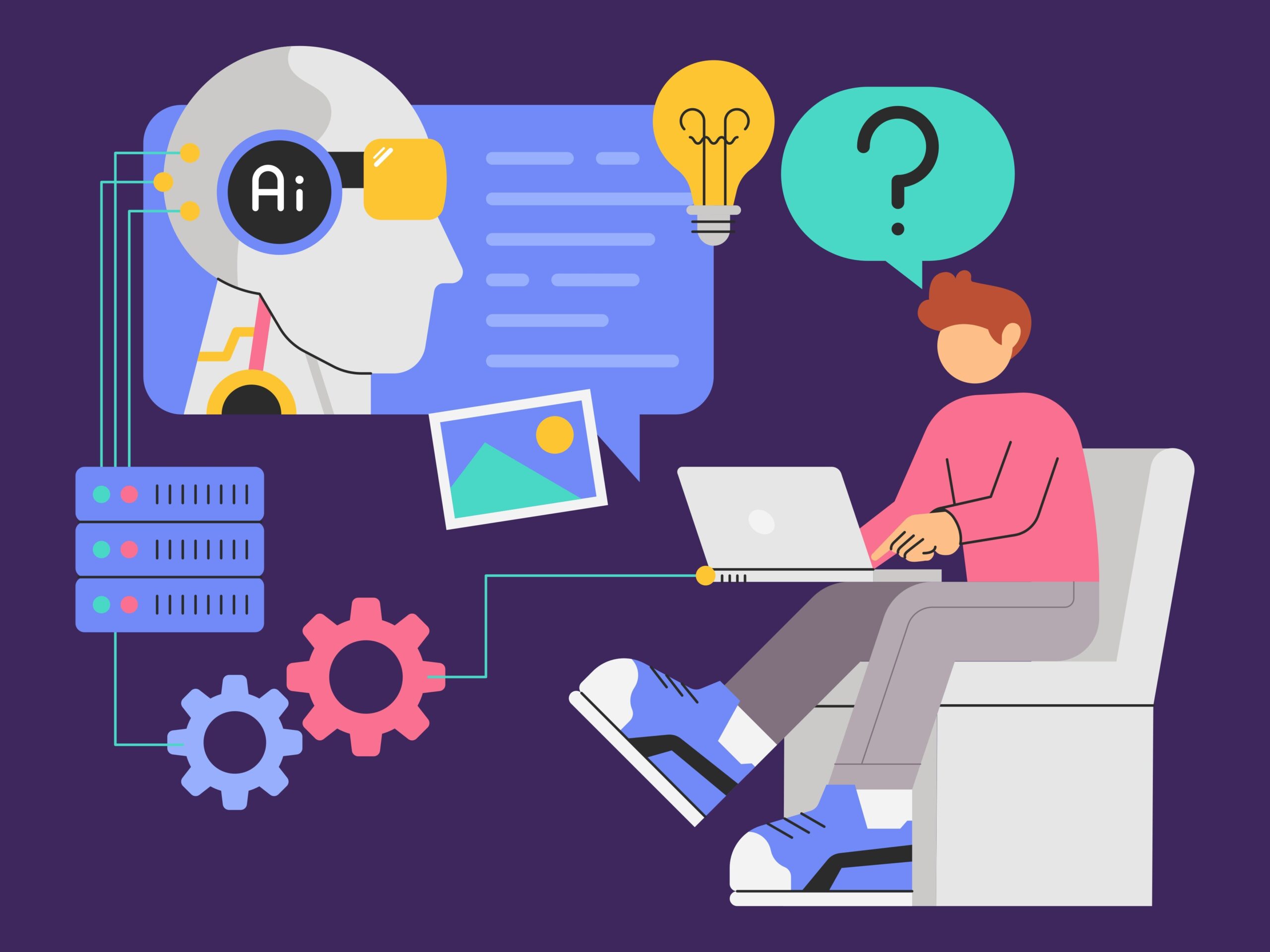Class1 to 8th Class is a critical phase in a child’s educational journey, laying the foundation for all future learning. These grades cover the essential stages of primary and early secondary school education, where children develop fundamental academic skills and social abilities. In this article, we will explore the significance of Class 1 to 8th Class, the subjects typically taught, and the importance of a well-rounded curriculum during these formative years.
Importance of Class 1 to 8th Class in a Child’s Development
The years spent in Class1 to 8th Class are crucial for a child’s cognitive, emotional, and social growth. These grades represent the core years when students develop essential skills that they will carry with them throughout their lives. The learning environment during this period plays a key role in shaping a child’s academic mindset and overall outlook on education.
Building Core Academic Skills in Class 1 to 8th Class
The early years of education focus heavily on developing basic literacy and numeracy. Here are the core subjects and skills children typically learn in Class1 to 8th Class:
- Language and Literature
- In Class1 to 8th Class, students are introduced to reading, writing, listening, and speaking. By Class 8, children are expected to have a solid grasp of language structure, vocabulary, and grammar.
- Students engage in writing compositions, reading comprehension, and oral communication exercises. In addition, literature subjects begin to deepen their understanding of cultural contexts and critical thinking.
- Mathematics
- In Class1 to 8th Class, mathematics is a progressive subject that gradually introduces concepts from basic arithmetic to more complex topics like algebra, geometry, and data analysis.
- The emphasis is on problem-solving, logical reasoning, and developing a solid foundation in mathematical operations.
- Science
- Class1 to 8th Class students learn the basics of physical, biological, and earth sciences. They start with simple concepts in Class 1 and move towards more complex ideas in Class 8, such as the laws of physics, chemical reactions, and biological systems.
- This curriculum aims to foster curiosity, observation skills, and scientific thinking.
- Social Studies
- Children in Class1 to 8th Class learn about their country, history, geography, and the world around them. From learning about communities and cultures in the early classes to more advanced topics like world history, government systems, and economic principles by Class 8, social studies shapes young minds to understand the global landscape.
- Art and Physical Education
- Alongside core academic subjects, children in Class1 to 8th Class engage in creative and physical activities. Art and Physical Education (PE) help to nurture creativity, teamwork, and physical fitness.
- These subjects contribute to developing motor skills, artistic expression, and the ability to collaborate with peers in group activities.
Key Skills Developed in Class 1 to 8th Class
The educational journey through Class1 to 8th Class is not just about mastering academic subjects; it’s a period when students develop a wide range of essential skills that are foundational for their future success. These skills go beyond textbook knowledge and play a pivotal role in shaping students’ personal, social, and intellectual growth. Let’s dive deeper into the key skills developed during these years.
1. Critical Thinking and Problem-Solving
As students progress through Class1 to 8th Class, they are introduced to more complex subjects that encourage logical reasoning and problem-solving. Mathematics, science, and even language arts require students to analyze, evaluate, and think critically. Here’s how these skills evolve:
- Mathematical Reasoning: From simple addition and subtraction in Class1 to algebraic equations in Class 8, students learn to approach problems with logic, break them down into smaller parts, and apply suitable methods for solving them.
- Scientific Inquiry: In science, students are encouraged to ask questions, hypothesize solutions, conduct experiments, and interpret results. This scientific method enhances their ability to approach problems methodically and think critically about solutions.
- Literacy Development: In language studies, students analyze texts, infer meanings, and evaluate arguments, which sharpens their analytical thinking.
2. Social Skills and Emotional Intelligence
Social and emotional development is a cornerstone of Class1 to 8th Class education. At this stage, students begin to navigate a wide range of social settings, both inside and outside the classroom, which significantly contributes to the development of their interpersonal skills.
- Communication Skills: Students learn to express themselves clearly and listen actively, both in one-on-one interactions and group discussions. By engaging in classroom debates, group activities, and presentations, students develop effective communication skills.
- Collaboration and Teamwork: Many activities in Class1 to 8th Class involve teamwork, from group projects in science to sports teams and school clubs. Students learn how to work together toward common goals, share responsibilities, and resolve conflicts within teams.
- Empathy and Understanding: As students interact with a diverse group of peers, they develop empathy and the ability to understand and respect others’ viewpoints. Activities like group discussions and conflict resolution sessions help students build emotional intelligence, which is critical for success in both personal and professional lives.
- Self-Regulation: Students in Class1 to 8th Class start to learn how to manage their emotions in different situations. They understand the importance of remaining calm and focused during challenging times and learning how to express their emotions in a healthy way.
3. Time Management and Organization
From Class1 to 8th Class, students begin to manage more responsibilities, including assignments, extracurricular activities, and social engagements. Developing time management and organizational skills is crucial during this period.
- Balancing Multiple Tasks: Students learn how to prioritize and manage various tasks. For example, they might have to complete a science project while preparing for an upcoming math test, which teaches them how to balance academic work and responsibilities effectively.
- Study Habits: As they progress through the classes, students develop structured study routines. This includes setting aside time for revision, breaking tasks into smaller steps, and using tools like planners or calendars to track assignments and deadlines.
- Independence and Self-Motivation: In Class1 to 8th Class, students become more independent in their learning. Teachers encourage them to set their own learning goals, track progress, and seek help when needed. These practices foster self-discipline and intrinsic motivation.
4. Creativity and Innovation
Creativity is not just about art; it is an essential skill that spans all subjects and helps students think outside the box. In Class1 to 8th Class, creativity is nurtured in various ways:
- Creative Expression in Arts: Through subjects like drawing, painting, music, and drama, students in Class1 to 8th Class have opportunities to express themselves creatively. These subjects help foster artistic thinking and the ability to see the world from different perspectives.
- Innovative Problem-Solving: In science and technology subjects, students are encouraged to innovate and create solutions to real-world problems. For example, building models or designing experiments involves out-of-the-box thinking that fosters creativity.
- Writing and Storytelling: In language arts, students develop their creativity by writing stories, poems, and essays. Through this, they not only enhance their writing skills but also learn to think imaginatively and express their ideas in unique ways.
5. Digital Literacy and Technological Skills
In today’s world, digital literacy is just as important as traditional subjects. Class1 to 8th Class is when students start to interact with technology in meaningful ways, building the digital skills they will need in the future.
- Basic Computer Skills: As early as Class 1, children begin to familiarize themselves with basic computer functions, word processing software, and online research tools. By Class 8, students are comfortable using the internet to find information, create presentations, and work with advanced software.
- Understanding Technology’s Role in Learning: Through subjects like math, science, and even art, students use educational apps, digital simulations, and online resources to enhance their learning experience. This encourages digital fluency and the ability to adapt to new technologies.
- Safety and Ethics in the Digital World: As part of digital education, students also learn about online safety, ethical behavior in digital spaces, and how to be responsible digital citizens.
6. Resilience and Growth Mindset
The journey from Class1 to 8th Class often involves overcoming obstacles, both academic and personal. Developing resilience during these formative years is critical for a student’s overall growth.
- Learning from Mistakes: Teachers encourage students to view mistakes as opportunities for growth rather than failures. This mindset fosters resilience, as students learn not to give up after setbacks but to try again and learn from the process.
- Handling Academic Pressure: As the academic load increases, students develop coping mechanisms to handle pressure, stay calm under stress, and maintain a positive outlook despite challenges.
- Adapting to Change: Children in Class1 to 8th Class also face changes in their learning environments and personal lives. Adapting to these changes teaches them how to be flexible and open-minded in the face of new situations.
7. Leadership and Responsibility
While leadership skills typically emerge later in high school, the groundwork for leadership is laid in Class1 to 8th Class. Students in this stage begin to take on more responsibilities both inside and outside the classroom.
- Classroom Leadership Roles: Students may take on roles such as class monitor, group leader for projects, or team captain for sports activities. These positions help them build confidence, decision-making abilities, and a sense of accountability.
- Responsibility in Group Work: Working on projects and assignments in groups teaches students how to lead peers, delegate tasks, and ensure everyone contributes effectively to the collective goal.
8. Cultural Awareness and Global Perspective
As students progress from Class1 to 8th Class, their exposure to diverse cultures, ideas, and global issues increases. This fosters a sense of global citizenship and cultural sensitivity.
- Understanding Diversity: In social studies and language lessons, students learn about different cultures, traditions, and global issues. This exposure helps them appreciate diversity and become more empathetic and open-minded.
- Global Issues and Solutions: By Class 8, students are introduced to broader global concerns like climate change, human rights, and technological advancements, which broadens their worldview and encourages them to think about their role in addressing these issues.
Challenges in Class1 to 8th Class and How to Overcome Them
While Class1 to 8th Class offers great opportunities for growth, this period also comes with certain challenges.
- Academic Pressure
- As students progress from Class1 to Class 8, the academic demands increase. Children might struggle with complex topics like advanced mathematics or science.
- To overcome this, parents and educators can provide extra support, such as tutoring or focused revision sessions.
- Social Pressures
- Peer pressure and social dynamics can become more challenging as children grow older.
- Encouraging positive communication, helping children develop self-confidence, and addressing bullying early can mitigate these challenges.
- Emotional Development
- As children approach Class 8, they experience more emotional fluctuations due to physical and hormonal changes.
- It’s crucial for parents and teachers to create a supportive and understanding environment to guide children through these changes.
The Role of Parents and Teachers in Class1 to 8th Class
For children to thrive in Class1 to 8th Class, the partnership between parents and teachers is crucial.
- Parental Involvement: Parents can support their child’s learning by ensuring they have a structured routine, assisting with homework, and encouraging them to pursue extracurricular activities.
- Teacher Support: Teachers play a pivotal role in identifying challenges early, providing encouragement, and adapting teaching methods to suit individual learning styles.
FAQ’S
1. What is the importance of Class1 to 8th Class in a child’s education?
Class 1 to 8th Class is crucial as it lays the foundation for future academic learning and personal development. During these years, students build core academic skills such as literacy, numeracy, and critical thinking. Additionally, they develop social, emotional, and problem-solving skills that are essential for their overall growth and success in later years.
2. What subjects are typically taught in Class 1 to 8th Class?
In Class 1 to 8th Class, students typically study the following core subjects:
- Language and Literature: Reading, writing, grammar, and comprehension.
- Mathematics: Basic arithmetic to more advanced topics like algebra and geometry.
- Science: A blend of physical, biological, and earth sciences.
- Social Studies: History, geography, and understanding of societal structures.
- Art and Physical Education: Encouraging creativity and physical health.
3. How can parents support their children during Class 1 to 8th Class?
Parents can play a vital role in their child’s education by:
- Creating a structured routine that includes time for schoolwork, play, and rest.
- Being involved in their child’s learning, whether by helping with homework or attending parent-teacher meetings.
- Encouraging extracurricular activities that promote creativity, social skills, and physical fitness.
- Fostering a growth mindset by encouraging their child to learn from mistakes and persevere through challenges.
4. What key skills do students develop in Class 1 to 8th Class?
During Class 1 to 8th Class, students develop critical skills including:
- Critical thinking and problem-solving through subjects like mathematics and science.
- Social and emotional intelligence by interacting with peers and teachers.
- Time management and organizational skills as they balance academic work and extracurricular activities.
- Creativity and innovation through subjects like art, music, and science projects.
- Digital literacy by learning to use technology for research and academic tasks.
5. How does the curriculum in Class 1 to 8th Class prepare students for high school?
The curriculum in Class 1 to 8th Class builds a strong academic foundation, which prepares students for high school by:
- Introducing more advanced topics in subjects like mathematics, science, and language arts.
- Promoting independent learning, critical thinking, and the ability to analyze and synthesize information.
- Encouraging collaboration and leadership through group projects and extracurricular activities.
- Fostering a growth mindset, preparing students to tackle more challenging content in high school.
6. Are there any challenges students face in Class 1 to 8th Class?
Some common challenges students may face in Class 1 to 8th Class include:
- Academic pressure as the difficulty of subjects increases.
- Social pressures related to peer relationships and fitting in.
- Emotional development, with students experiencing fluctuations in their feelings due to growth and maturity. To help students overcome these challenges, parents and teachers can provide support, create a positive learning environment, and encourage open communication.
7. How can students improve their academic performance in Class 1 to 8th Class?
Students can improve their academic performance by:
- Developing good study habits such as regular revision and breaking tasks into smaller, manageable steps.
- Asking for help when they don’t understand a topic, whether from a teacher, tutor, or parent.
- Staying organized with a planner or calendar to track assignments and deadlines.
- Practicing regularly in subjects like math and language to strengthen their skills.
8. How do schools assess students in Class 1 to 8th Class?
Students in Class 1 to 8th Class are typically assessed through:
- Regular tests and quizzes on subjects like math, science, and language arts.
- Projects and assignments that allow students to apply what they have learned.
- Classroom participation and homework to gauge understanding and engagement.
- Teacher observations of student progress, behavior, and skills development.
9. Can students join extracurricular activities during Class 1 to 8th Class?
Yes, extracurricular activities play an essential role in the development of students in Class 1 to 8th Class. These activities can include:
- Sports like football, basketball, or swimming, which enhance physical health and teamwork skills.
- Clubs such as debate, drama, or music, which promote creativity and self-expression.
- Community service projects that teach social responsibility and leadership.
10. How can digital tools help students in Class 1 to 8th Class?
Digital tools, including educational apps, online resources, and interactive software, can enhance learning by:
- Providing access to a wide range of educational materials that supplement textbook learning.
- Helping students practice and reinforce concepts in subjects like math, languages, and science.
- Encouraging self-paced learning by allowing students to explore topics at their own pace.
- Improving digital literacy, which is essential for success in today’s tech-driven world.
Conclusion
The years spent in Class 1 to 8th Class are essential in shaping a child’s academic and personal development. These early years set the stage for future learning, providing children with the skills they need to excel in high school and beyond. By focusing on a comprehensive curriculum and providing adequate support, both at home and in school, students can navigate this critical period with confidence and emerge ready for the challenges ahead.











